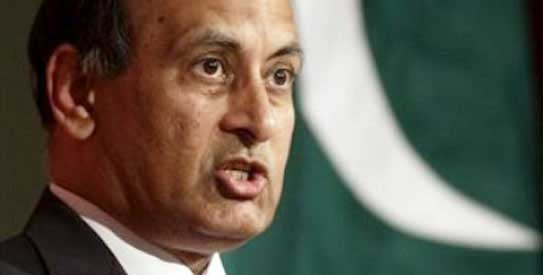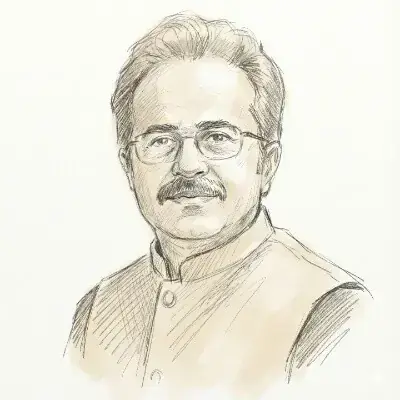
ISLAMABAD: Former ambassador to the United States Husain Haqqani requested the memo commission on Monday not to appoint a forensic expert at government expense for verifying the data submitted by Pakistani-American businessman Mansoor Ijaz, a central character in the memo controversy.
“Since the forensic examination is being carried out at the request of Mr Ijaz, its cost should be borne by him and precious/scarce resources of the state of Pakistan should not be wasted for any such purpose,” he said in his reply to Mr Ijaz’s testimony claiming that he had drafted and delivered the memorandum to the former US military chief Admiral Mike Mullen through former US national security adviser James Jones at the insistence of Mr Haqqani.
Although Mr Haqqani did not deny his contacts with Mr Ijaz, he rejected the evidence produced against him.
He strongly denied Mr Ijaz’s claim in his testimony and during cross-examination by the commission that he had been in contact with him (Mr Haqqani) through BlackBerry messenger during the events of May 9 to 12 last year and on the issue relating to the memorandum.
“I did not receive, read or send out any email from Mr Ijaz,” Mr Haqqani said in his reply. He said that since he was not able to locate his BlackBerry handsets, despite “earnest and sincere efforts”, he could not verify, reject or recollect PIN numbers provided by Mr Ijaz during his testimony.
Advocate Sajid Tanoli, the counsel for Mr Haqqani, told Dawn that Advocate Zahid Bukhari would cross-examine Mr Ijaz from London on March 15, the day when the commission, headed by Balochistan High Court Chief Justice Qazi Faez Isa, would resume the hearing of the case in Islamabad. After the cross-examination of Mr Ijaz, he said, his client would appear before the commission to prove his innocence.
Mr Haqqani submitted to the commission his phone bills for May, September, October and November 2011 and requested it not to make them public.
“My privacy right should be respected. Disclosure of the phone record may have serious national security implications because during that period I was serving as Pakistan’s ambassador to the United States.”
Mr Haqqani neither admitted nor denied exchange with Mr Ijaz in its entirety, but vehemently denied the context, explanations and assertions of the latter’s statement before the commission with respect to preparation, origin, purpose and authentication of the memo.


































